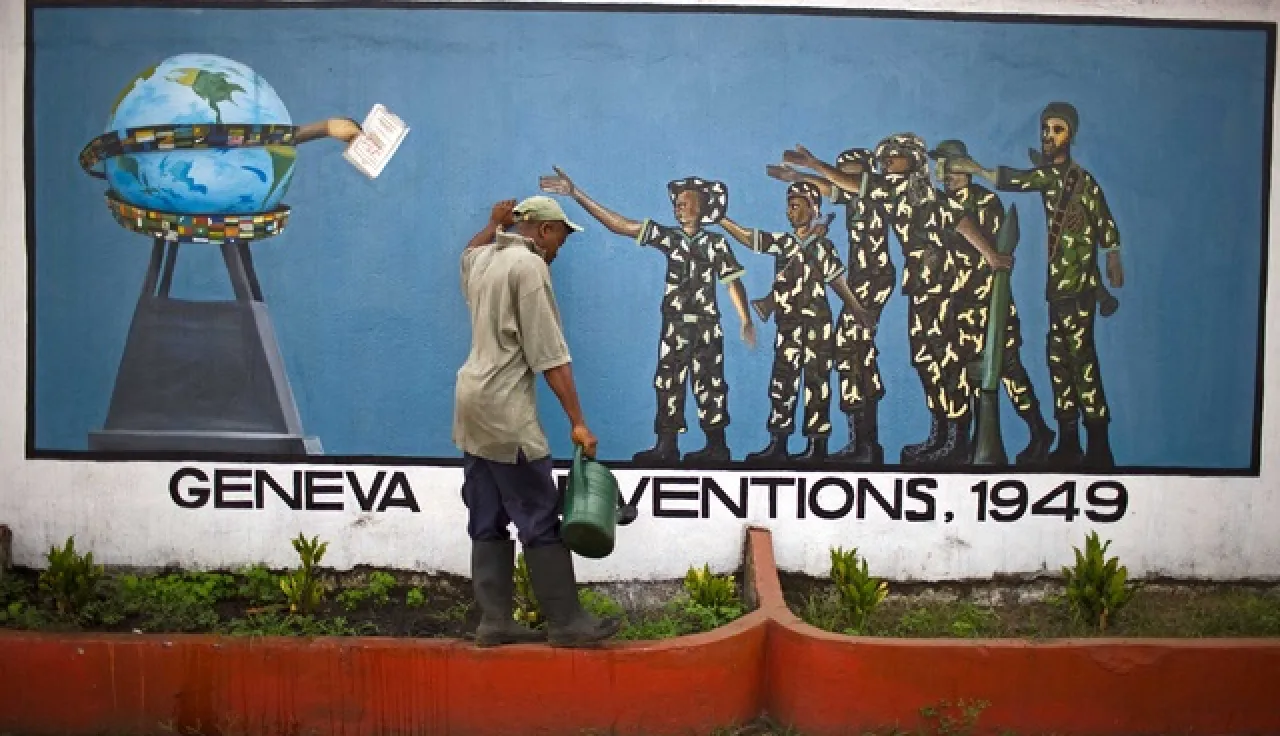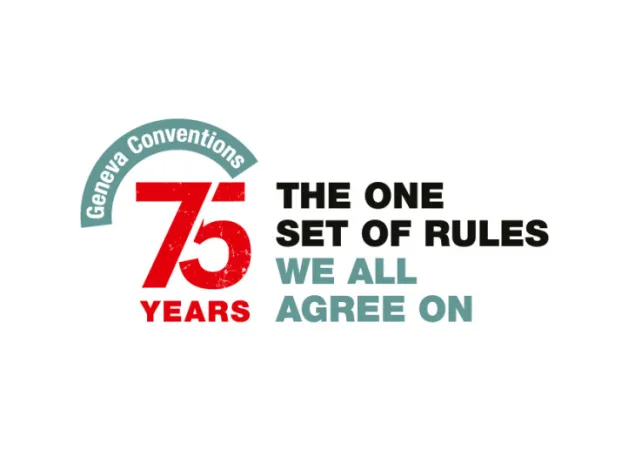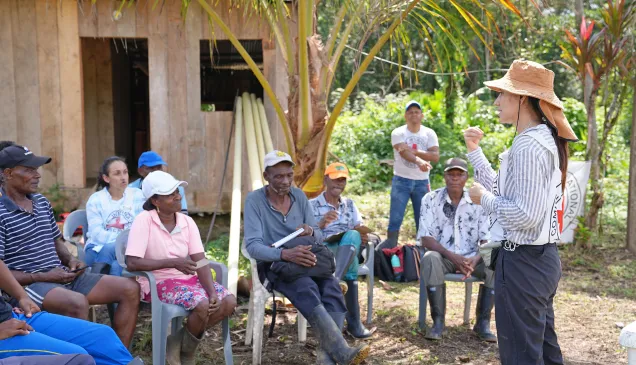75th anniversary of the Geneva Conventions – “The one set of rules we all agree on”

2024 marks the 75th anniversary of the four Geneva Conventions of 1949, providing an opportunity to reflect on their fundamental role in protecting people affected by armed conflict.
The vital role of international humanitarian law
When international humanitarian law (IHL) is respected, lives are saved and people's dignity is upheld. The 75th anniversary of the Geneva Conventions – the cornerstone of IHL – reminds us of the world's agreement that wars must have limits, and that, regardless of the circumstances, respect for human dignity and compassion must always guide our actions.
Watching the news, we can easily get the impression that IHL is no longer relevant and never respected. Just like in 1949, today's wars continue to have horrific consequences: taking lives, separating families and causing unspeakable suffering. Yet by focusing on victims of armed conflict and their needs, IHL does prevent and mitigate some of war's worst consequences – although much more must be done to improve implementation and compliance.
Key things to know about the Geneva Conventions
Origin and purpose
The Geneva Conventions were adopted in 1949 and are now universally ratified, representing a universal acknowledgement that war needs rules to limit its devastating impact on humanity. They form the core of international humanitarian law (IHL), which protects people who are not, or are no longer, taking part in the fighting. IHL also regulates the conduct of armed conflict by limiting the means and methods of warfare to maintain some humanity in armed conflicts, save lives and reduce suffering. The Geneva Conventions – and IHL in general – safeguard the rights of everybody affected by armed conflict and ensure that everyone, even an enemy, is seen as a human being.
Universally shared values
IHL is the formal expression of universally shared, deeply held human values. In history, virtually all wars have had at least some rules governing how they can be fought and how people at risk – like detainees, children or the wounded and sick – should be protected. IHL both complements and strengthens legal traditions, civilizations and cultures, and is a common heritage of humankind. The strength of the world's agreement on these rules to limit the human cost of war should not be underestimated. In fact, the world has no stronger tool at its disposal to use in times of war to protect victims of armed conflicts.
75 years on, these rules remain as relevant as ever
In a divided world, it remains a powerful fact that every state has decided that limiting the human cost of war is their legal obligation. As many of the contemporary treaty-based rules of IHL turn 75, they remain as relevant as ever. When parties respect the law, lives are saved, families stay in touch with their loved ones and detainees maintain their dignity. These things are less visible or newsworthy, but they are powerful reminders that IHL does act as a brake on inhumane behaviour in war, and that we would be worse off without it.
IHL has evolved in tandem with the new realities of warfare
New challenges such as cyber warfare, autonomous weapons and the use of weapons in outer space have become reality in contemporary armed conflict. IHL has adapted and continues to adapt in lockstep with the new realities of warfare, the transformation of military technologies and tactics, and technological advancements. There is no question that IHL remains relevant to regulating the use of new weapons during armed conflicts – just as it already regulates the use of existing ones.
Respecting IHL helps people to go back to living peacefully together again
Armed conflicts are bloody, ruin lives and will always create unspeakable suffering and devastation. IHL was created to prevent war from becoming even more ferocious, and to make it easier for peace to return. Peace has always been the overriding objective of the states that created IHL, and its faithful application has a role to play in bolstering efforts to end armed conflicts.
The need for better implementation and compliance – the onus on states and parties to armed conflicts
Even if the Geneva Conventions are universally ratified, they are not universally upheld. States and parties to conflict must lead by example. Ultimately, respect for IHL is a question of political will, and we call on states to create a global culture of compliance with IHL. Preventing violations of IHL starts with sowing the seeds of respect for IHL long before a conflict breaks out and setting a clear expectation that the rules will be scrupulously followed if and when it does.
The role of the International Committee of the Red Cross (ICRC)
The ICRC plays a pivotal role in promoting adherence to IHL and calls on all parties to a conflict to comply with IHL, no matter the circumstances.
ICRC staff bear witness to the protective effects of IHL every day. We owe our ability to work – visiting detainees, repatriating mortal remains, supporting hospitals, moving freely on both sides of the front lines to assist those in need and discussing allegations of violations confidentially with the parties – to the effectiveness of IHL. We do not take sides but rather focus on helping people who are suffering, regardless of their background, beliefs or actions.

Learn more about the Geneva Conventions
- IHL in action website: Respect for the law on the battlefield
- The Introduction to International Humanitarian Law module on the basic rules and principles of IHL, prepared by the ICRC in 2019 on the 70th anniversary of the Geneva Conventions
- The Geneva Conventions and their Commentaries
- What did the drafters of the Geneva Conventions have in mind?
- International Humanitarian Law Databases: IHL Treaties - Geneva Conventions of 1949, Additional Protocols and their Commentaries
- International Conference of the Red Cross and Red Crescent: Statutory Meetings – The power of humanity
- The ICRC library holds a collection of translations of the Geneva Conventions in 45 languages, with some directly accessible online



